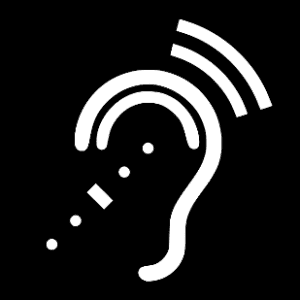My ever-expanding list of language topics I should know more about has long since had sign language on it, and my interest increased when my middle daughter selected a university credit in British Sign Language as part of her liberal arts degree. So I was primed to notice a recent headline about the UK’s first deaf scholar in the field of deaf studies and sign language studies.
Annelies Kusters is now a professor at Heriot-Watt University’s department of languages and intercultural studies. She has been studying the everyday interactions of deaf people all around the world for almost two decades, with research projects taking her to a variety of countries in Europe, South America, India and Africa. Her PhD examined a community in Ghana, where a high rate of hereditary deafness has prompted the creation of a new sign language to facilitate communication between deaf and hearing people.
This interest in pragmatic language creation ties in neatly with some of her subsequent work on what she describes as ‘multimodal languaging’, a range of techniques used to overcome communication barriers between deaf and hearing people, and to accommodate varying degrees of fluency in a shared language such as sign language. The concept of translanguaging was originally applied to spoken language and captured the way ‘bilinguals and multilinguals use their linguistic resources to make sense of and interact with the world around them’.
It is not surprising that the concept of translanguaging has been so readily applied within sign language studies because deaf people regularly have to tackle spaces where their own language is not understood or available as a means of communication. A fascinating blog post at Mobile Deaf suggests there may be a need for caution if the concept of translanguaging is exploited to inhibit the promotion and protection of fully-fledged signing languages. The descriptive power of the translanguaging concept is not denied, it is acknowledged that ‘translanguaging is central to the deaf experience’. But the blog explores how translanguaging approaches could be counterproductive particularly in educational or legal settings if used to legitimise mixed modes of communication, some of which may simply be inaccessible to someone with hearing loss. The result could be ‘deaf people growing up with limited natural language input and perpetuating the use of non-fluent signers in deaf education settings’. As an example of such a threat, the blog cites the use of a non-fluent signing teacher who complements her limited signing with spoken language or other modes of communication. As well as potentially deploying strategies that are inaccessible to the deaf students in the class, the non-fluent teacher deprives students of exposure to a fully developed, rich sign language.
In other words, the authors suggest there is a tension between the ‘messy’ reality of everyday communication adopted for pragmatic reasons and the need to advocate for protection of minority languages such as sign language.
It would be wrong to end this post and not refer to the great work done for raising awareness for sign languages and deaf communities by the International Day of Sign Languages, celebrated each year on 23 September.
About the Author
Alison Tunley
Alison is a seasoned freelance translator with over 15 years of experience, specialising in translating from German to English. Originally from Wales, she has been a Londoner for some time, and she holds a PhD in Phonetics and an MPhil in Linguistics from the University of Cambridge, where she also completed her First Class BA degree in German and Spanish… Read Full Bio
Image source: Pixabay.com










